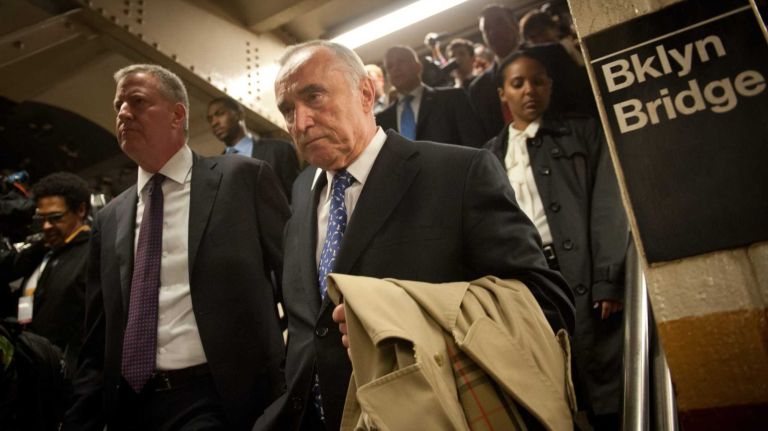
Is “broken-windows” policing broken?
Some City Council members and an increasingly vocal chorus of workaday New Yorkers think so.
A recent New York Civil Liberties Union study shows that 81 percent of suspects the NYPD arrested on minor offenses between 2001 and 2013 were black or Hispanic.
And Brooklyn Councilwoman Inez Barron pointed out in August that NYPD confrontations like the one leading to the death of Eric Garner — for allegedly selling illegal smokes on Staten Island — were all too common.
But in truth, broken-windows — the idea that police can prevent major crimes by enforcing smaller, quality-of-life statutes — is not broken. Allegations that it is biased, brutal and a prime candidate for retirement couldn’t be further from the truth.
Of course, it fell to NYPD Commissioner William Bratton last week to powerfully defend the crime-fighting method he has successfully road-tested on the tough streets of New York and Los Angeles.
Bratton said most of the quality-of-life issues that the NYPD addresses originate with citizen complaints: folks who call 911 about hookers hanging around in doorways, or maybe teenagers smoking weed in apartment hallways. Cities that don’t permit such things are better places to live. They show that lawfulness matters.
Bratton also labeled the notion that policing should be racially proportionate as “completely absurd.” Cops “go where the victims are,” he said. He’s talking about victims of serious crimes, as well as people who call the cops because they want to lead quiet lives in their neighborhoods.
But broken-windows could use a few tweaks.
There’s the matter of proportion. The NYPD likely had reason to approach Eric Garner for selling illegal smokes, and Garner should never have resisted arrest. But it was wrong for cops to respond with a chokehold, which the NYPD bans. There are other ways to subdue subjects.
And why not reduce infractions like the public display of weed to a violation instead of a misdemeanor?
A healthy society fixes its broken windows without taking leave of its common sense.







































